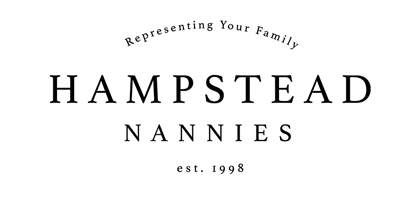Whether you’re about to hire your first nanny, or you’re somewhat of an experienced employer, the search for a nanny can be a stressful and daunting task.
How do you vet candidates and find the perfect nanny to suit the needs of your family and, most importantly, your children?
Interviews tell you a lot about a candidate’s qualifications and experience but, when you ask the right questions, they can also tell a lot about one’s personality outside of their work and how they might fit in with your family.
We’ve crafted what we think are the essential interview questions to cover all bases and find a nanny who truly aligns with your family’s lifestyle, so you can build a long-lasting and positive relationship with the nanny you hire.
Preparing Before Your Interview
Before the interview stage, ask the following of potential candidates. You never want to find the “perfect nanny” only to realise they’re missing one of these credentials:
Q: Have you recently had a DBS check, and can you provide proof of this if so?
Q: What relevant qualifications do you have? Can you bring accompanying certificates with you to the interview or send beforehand?
Q: Are you first aid and/or CPR trained?
Q: Do you have a UK passport? Do you have a visa / the right to work in the UK? If so, for how long?
Q: Do you drive? And have you ever been involved in a traffic accident - if so, could you share further details?
Q: What is your availability? When can you start and do you have any existing commitments that would conflict with the hours required?
Note: Nannies shortlisted through Hampstead Nannies will have had these credentials checked by our team before they interview with families.
The Nanny Interview Questions You Should Be Asking
While it is important to get a full understanding of a potential nanny’s experience and suitability, you also want to give candidates the opportunity to express themselves in a way that is authentic to who they are as a person.
We suggest starting any interview with a few “icebreaker” questions or informal conversation, allowing the candidate to relax. Here’s a few for inspiration:
Q: Tell me about yourself.
Q: What was your childhood and family like?
Q: What made you want to become a nanny?
Q: Do you have any hobbies?
Once a candidate appears to have a flow with their answers, get into the more specific questions:
Q: What do you love about working with children?
This may seem an ‘obvious’ question but answers can be very telling. An ideal candidate should enthuse or show a degree of passion when talking about their experience working with children. Lack of interest or enthusiasm could be a red flag.
Q: Why are you leaving your current role? Why did you leave your last job?
Q: How would you deal with a child that was having a terrible tantrum in a supermarket or public location?
Again, this tells a lot about whether a candidate’s methods of calming or disciplining children align with your own.
Q: If live-out, where do you live now and how will you get to work if successful today?
Q: How flexible are you prepared to be if I’m late home?
If the candidate has flexibility to work outside normal hours it’s also worth gauging whether there is an expectation of further remuneration in this scenario.
Q: Tell me about your cooking? What are your principles for food hygiene?
If the expectation is that your nanny will also prepare meals for children then get a feel for the kind of meals they prepare and consider whether these align with your own eating habits and dietary requirements, and whether these will provide suitable nutrition. A humble beans on toast may not cut the mustard here!
Q: What’s the most challenging/difficult thing that’s ever happened to you when on duty as a nanny?
Q: Have you ever been in a scenario where the nanny-family relationship did not work out? How was this approached and would you change anything about this?
If the relationship between nanny and family doesn’t work out, dismissal or resignation is always an uncomfortable conversation for both parties. It’s good to get an understanding of why this has happened to them in the past (if applicable) and how they would prefer to handle this scenario should it ever arise.
Q: Is there anything further you’d like to add about your experience, or anything you’d like to disclose?
Give them the opportunity to talk about other experiences or things they’re passionate about that you may not otherwise have covered. This also gives the opportunity to share details of any offences.
Additional interview questions you may not have considered:
With the essentials covered, you may wish to ask further questions that are specific to you and your expectations. Here’s some examples for inspiration:
Q: Do you have any extracurricular qualifications in sports or the arts etc?
Q: Do you speak any additional languages?
Q: Would you be willing to work outside term time and/or accompany the family during travel if needed?
Q: Are you qualified and / or able to provide tutoring or support with homework?
You can of course tailor these questions to you and your family, building on the examples above and adding or removing any further questions to suit but this hopefully gives you a strong starting point on your search for your perfect nanny.

